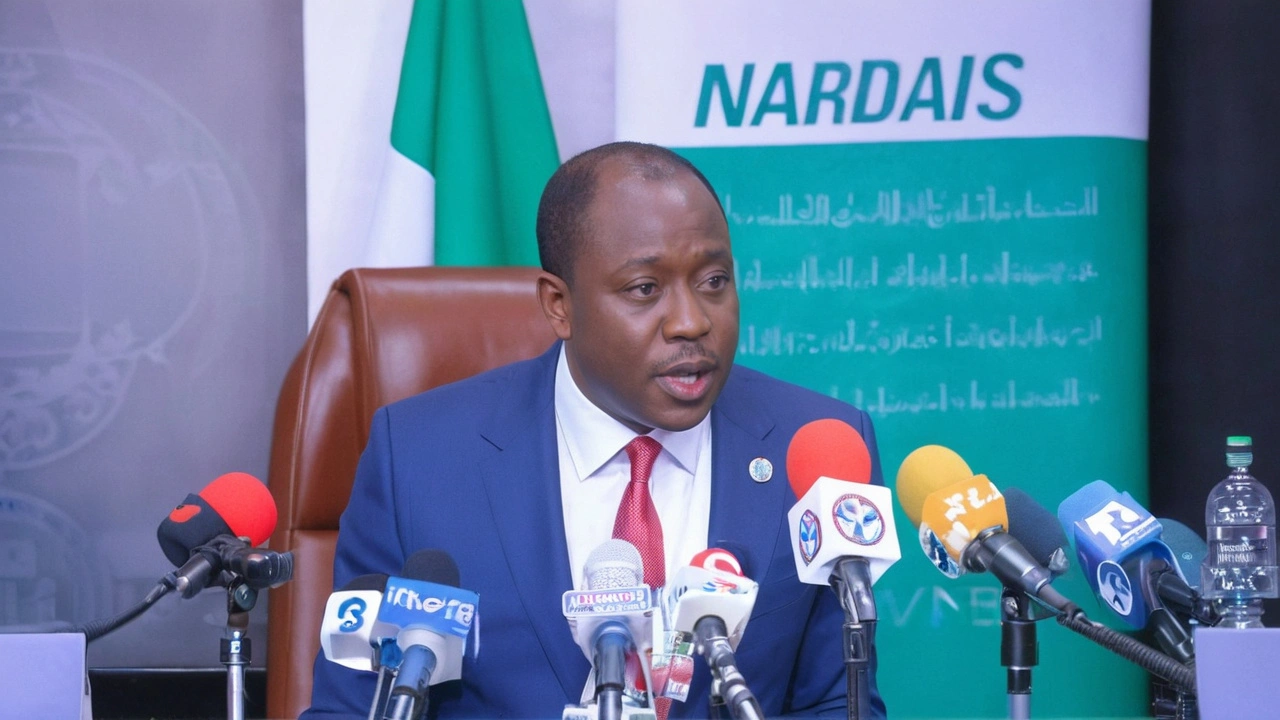CBN Infuses N700 Billion to Bolster Unity Bank and Providus Bank Merger
7 Aug, 2024CBN's Bold Move to Strengthen Nigeria's Banking Sector: A Closer Look
The Central Bank of Nigeria (CBN) has taken a decisive step to stabilize the banking sector by injecting N700 billion into the merger between Unity Bank and Providus Bank. This substantial financial intervention is expected to address liquidity issues that have been plaguing these banks, while also reinforcing the overall integrity and trust in Nigeria's banking system. The CBN's involvement comes as part of a broad strategy to ensure that no major financial institution collapses under economic strain, thus maintaining public confidence.
The Current State of Nigeria’s Banking System
Nigerian banks have been grappling with a series of economic challenges, including currency depreciation, declining oil revenues, and the impact of global financial fluctuations. These factors have strained liquidity levels and operational efficiency across the sector. Unity Bank and Providus Bank, like many other banks, have felt the ripple effects of these challenges, leading to concerns about their long-term viability. Amid such a backdrop, the CBN's infusion of funds is seen as a necessary lifeline to uphold stability and avert a banking crisis.
The bailout is not just a reactionary measure; it’s a proactive step aimed at preventing potential bank failures that could have far-reaching consequences on the economy. Past experiences have shown that bank failures cause a ripple effect, impacting not just their immediate stakeholders but also undermining public trust in the financial system. The CBN's intervention is thus critical in assuring depositors and investors of the stability of the financial sector, thereby restoring and maintaining public trust.
Understanding the Merger: Unity Bank and Providus Bank
Unity Bank and Providus Bank have both been significant players in Nigeria's financial landscape, albeit facing different challenges. Unity Bank has struggled with non-performing loans and diminishing capital reserves, while Providus Bank has had issues with maintaining adequate liquidity. The merger, aided by CBN's N700 billion injection, is poised to bring together the strengths of both institutions, creating a more resilient and efficient entity.
This merger is anticipated to result in a blend of Unity Bank’s wide network and Providus Bank’s innovative banking solutions. Combining these resources is expected to enhance customer service, broaden their reach, and improve overall financial health. The CBN’s intervention ensures that this merger can proceed smoothly, addressing any immediate liquidity issues and setting a foundation for long-term success.
Expert Opinions on the Bailout
Financial analysts and industry experts have largely lauded the CBN’s intervention as a timely and necessary action. Many believe that this move will not only help stabilize Unity Bank and Providus Bank but also send a strong message of regulatory support to the broader banking sector. This action is seen as a positive signal that the CBN is committed to safeguarding the financial system against disruptive shocks.
Experts also point out that such a significant bailout can catalyze further positive changes. The injection of N700 billion will provide the necessary support for Unity Bank and Providus Bank to overhaul their operations, innovate, and enhance efficiency. This could lead to more robust competition in the banking sector, which, in turn, benefits consumers through better services and products.
Long-term Implications for the Nigerian Economy
While the immediate focus is on stabilizing the banks involved, the long-term implications for the Nigerian economy are equally significant. A healthier banking sector is crucial for sustaining economic growth, particularly in a country like Nigeria, where banks play a central role in financial intermediation. By ensuring that these institutions remain solvent and operational, the CBN is contributing to a stable economic environment conducive to investment and development.
Moreover, the successful stabilization of Unity Bank and Providus Bank could serve as a model for future interventions. It sets a precedent for how the central bank might handle similar situations in the future, thereby instilling confidence among other financial institutions and businesses in the country.
Challenges Ahead
Despite the optimism surrounding this development, challenges remain. Merger integrations are often complex, involving significant restructuring and cultural alignment. Unity Bank and Providus Bank will need to navigate these complexities to realize the full benefits of their consolidation. Furthermore, the success of the bailout will largely depend on how effectively the newly formed entity utilizes the injected capital to address underlying issues and build a sustainable business model.
In addition, maintaining regulatory oversight will be critical. The CBN will need to continue its vigilance, ensuring that the funds are used appropriately and that the merged entity complies with all financial regulations. This will help prevent any misuse of the bailout funds and ensure that the intended objectives of stability and efficiency are achieved.
The Road Ahead for Unity and Providus
As Unity Bank and Providus Bank embark on this new chapter, they have a unique opportunity to redefine their positions in the Nigerian banking sector. The successful merger, supported by the CBN's intervention, can serve as a catalyst for innovation and growth. However, the management teams of both banks will need to work diligently to address any operational challenges, align their strategies, and create a unified organizational culture.
The road ahead will undoubtedly be challenging, but with the right strategies and support, Unity Bank and Providus Bank have the potential to emerge stronger and more resilient. The CBN’s infusion of N700 billion is not just a financial lifeline; it’s a vote of confidence in the potential of these institutions to contribute to a robust and dynamic banking sector in Nigeria.
Conclusion
In sum, the CBN's injection of N700 billion into the merger of Unity Bank and Providus Bank is a bold and strategic move aimed at stabilizing Nigeria's banking sector. This intervention addresses immediate liquidity challenges, supports the merger process, and sets the stage for long-term stability and growth. While challenges remain, the potential benefits of this move are significant, promising a healthier, more efficient banking sector that can better serve the needs of Nigeria's economy and its people.

 by
by